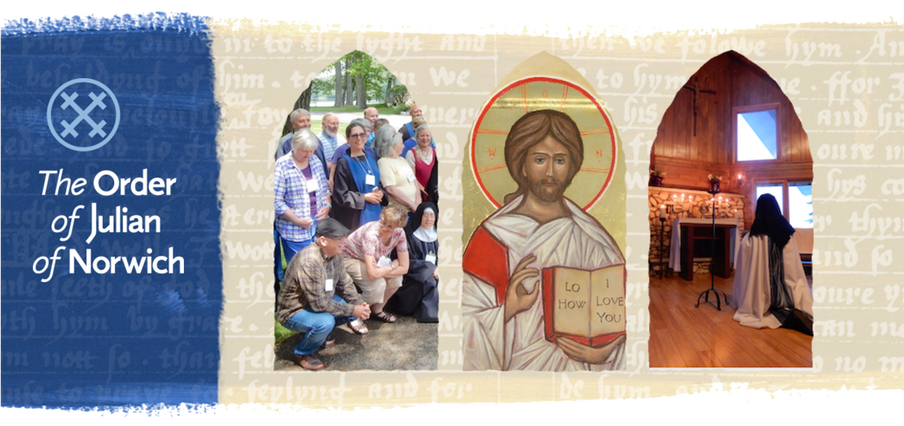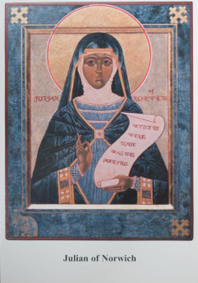Associates and Oblates of the Order are those who respond to the Holy Spirit's invitation to draw nearer to Jesus under the patronage of St Julian of Norwich, called to the contemplative life in the world. Their rules of life, adaptations of the monastic Rule, unite their lives of prayer to that of the monastery and commit them to a regular practice of silent prayer, worship and study, in the context of their own particular vocations and particular Christian traditions. In varying degrees they bring this contemplative practice into their parishes and communities by the transformation of their lives through the deepening of their relationship with Christ. (From the Order of Julian website)







